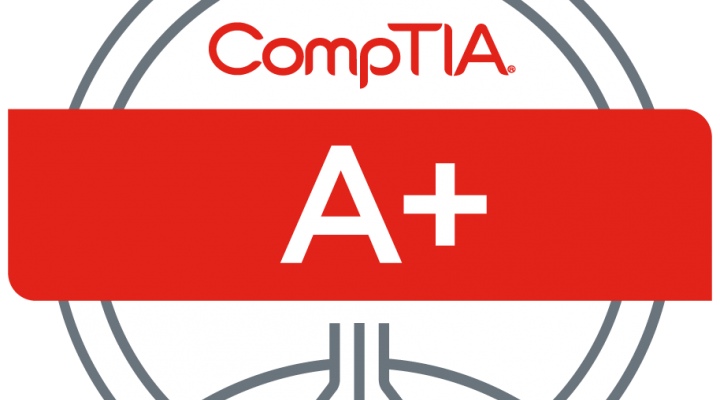Complete your training in all modules by completing your homework
CompTIA Security+
CompTIA Security+ təliminin mündəricatı
Cyber Security (SY0-601) :
Lesson 1 : Comparing Security Roles and Security Controls
- Compare and Contrast Information Security Roles
- Compare and Contrast Security Control and Framework Types
Lesson 2 : Explaining Threat Actors and Threat Intelligence
- Explain Threat Actor Types and Attack Vectors
- Explain Threat Intelligence Sources
Lesson 3 : Performing Security Assessments
- Assess Organizational Security with Network Reconnaissance Tools
- Explain Security Concerns with General Vulnerability Types
- Summarize Vulnerability Scanning Techniques
- Explain Penetration Testing Concepts
Lesson 4 : Identifying Social Engineering and Malware
- Compare and Contrast Social Engineering Techniques
- Analyze Indicators of Malware-Based Attacks
Lesson 5 : Summarizing Basic Cryptographic Concepts
- Compare and Contrast Cryptographic Ciphers
- Summarize Cryptographic Modes of Operation
- Summarize Cryptographic Use Cases and Weaknesses
- Summarize Other Cryptographic Technologies
Lesson 6 : Implementing Public Key Infrastructure
- Implement Certificates and Certificate Authorities
- Implement PKI Management
Lesson 7 : Implementing Authentication Controls
- Summarize Authentication Design Concepts
- Implement Knowledge-Based Authentication
- Implement Authentication Technologies
- Summarize Biometrics Authentication Concepts
Lesson 8 : Implementing Identity and Account Management Controls
- Implement Identity and Account Types
- Implement Account Policies
- Implement Authorization Solutions
- Explain the Importance of Personnel Policies
Lesson 9 : Implementing Secure Network Designs
- Implement Secure Network Designs
- Implement Secure Switching and Routing
- Implement Secure Wireless Infrastructure
- Implement Load Balancers
Lesson 10 : Implementing Network Security Appliances
- Implement Firewalls and Proxy Servers
- Implement Network Security Monitoring
- Summarize the Use of SIEM
Lesson 11 : Implementing Secure Network Protocols
- Implement Secure Network Operations Protocols
- Implement Secure Application Protocols
- Implement Secure Remote Access Protocols
Lesson 12 : Implementing Host Security Solutions
- Implement Secure Firmware
- Implement Endpoint Security
- Explain Embedded System Security Implications
Lesson 13 : Implementing Secure Mobile Solutions
- Implement Mobile Device Management
- Implement Secure Mobile Device Connections
Lesson 14 : Summarizing Secure Application Concepts
- Analyze Indicators of Application Attacks
- Analyze Indicators of Web Application Attacks
- Summarize Secure Coding Practices
- Implement Secure Script Environments
- Summarize Deployment and Automation Concepts
Lesson 15 : Implementing Secure Cloud Solutions
- Summarize Secure Cloud and Virtualization Services
- Apply Cloud Security Solutions
- Summarize Infrastructure as Code Concepts
Lesson 16 : Explaining Data Privacy and Protection Concepts
- Explain Privacy and Data Sensitivity Concepts
- Explain Privacy and Data Protection Controls
Lesson 17 : Performing Incident Response
- Summarize Incident Response Procedures
- Utilize Appropriate Data Sources for Incident Response
- Apply Mitigation Controls
Lesson 18 : Explaining Digital Forensics
- Explain Key Aspects of Digital Forensics Documentation
- Explain Key Aspects of Digital Forensics Evidence Acquisition
Lesson 19 : Summarizing Risk Management Concepts
- Explain Risk Management Processes and Concepts
- Explain Business Impact Analysis Concepts
Lesson 20 : Implementing Cybersecurity Resilience
- Implement Redundancy Strategies
- Implement Backup Strategies
- Implement Cybersecurity Resiliency Strategies
Lesson 21 : Explaining Physical Security
- Explain the Importance of Physical Site Security Controls
- Explain the Importance of Physical Host Security Controls
Security+ (SY0-601) DOMAINS:
- Attacks, Threats, and Vulnerabilities (24%)
- Architecture and Design (21%)
- Implementation (25%)
- Operations and Incident Response (16%)
- Governance, Risk, and Compliance (14%)
6 steps to become a professional
Registration
Payment
Get teacher feedback on each module and homework
Start
You pass the exam and get a new professional certificate
Training
Complete your training in all modules by completing your homework
Contact
Get teacher feedback on each module and homework
Exam
Pass the exam and get a new professional certificate
Other courses
Fortinet NSE 4 və 5
Cyber secuirty essentials
Do you have any questions?
Ask a question in a message that is convenient for you
